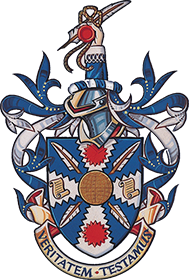Solicitor and notary are two words that are often used interchangeably in the legal profession. However, it’s important to note – although they both provide legal services – there are a number of important distinctions between them. In fact, becoming a notary public is a completely alternative career path and the day-to-day role of a notary public is very different from that of a solicitor.
Here we take a look at the main differences between a solicitor and notary public; hopefully clearing up the confusion on this matter and helping you to choose the right professional for the job.
Notary vs. Solicitor
There are three main ways in which a solicitor and notary public differ. These include:
1. Qualifications and training
All solicitors need to be fully-qualified with either a law degree, a graduate diploma in law or a law-based apprenticeship. However, to become a notary public, there a number of additional steps in the training process. Further academic studying may be necessary – covering subject areas that are specific to notary public services – and two professional training courses will need to be undertaken.
The first is a two-year distance learning course (Notarial Practice Course), provided by the University College London, and the second is a practical tuition course called the ‘Office Practical’. Notaries also have to obtain a certificate of good character and undergo multiple background checks.
2. Specialism
Solicitors make up the largest part of the legal profession. They are qualified to provide a vast range of solicitor services, including everything from criminal law and commercial litigation to property law and conveyancing. A solicitor can also help with contentious issues, offering advice and representation for their client – as long as it is done so within the legal framework of their country.
By contrast, a notary public focuses on one highly specialised area of the legal profession – that is, the preparation and authentication of documents, so that they can be used internationally.
This can include both personal and corporate documents, such as passports, wills, qualification certificates and deeds. The only restriction is that it has to be a non-contentious legal matter, where all parties involved are in agreement. A notary public cannot provide legal advice or representation; they are simply involved in the witnessing of signatures and the authentication of documents.
3. Primary duty
Whilst a solicitor’s primary duty is to act in the best interests of their client, a notary’s primary duty is to ensure that all documents are legally authentic. This is a recognised profession all over the world and, as such, they must comply with the current worldwide standards. There is no room for compassion or empathy. A notary must remain completely impartial at all times, demonstrating integrity and authenticating documents in a legal, objective and standardised manner.
SOLICITOR AND NOTARY PUBLIC SERVICES AT PROSPERITY LAW
Thanks to our fantastic range of staff, here at Prosperity Law, we are able to offer our clients an extensive range of commercial legal services across Manchester, Liverpool, and Lancashire – including services that are typically provided by a solicitor and those handled by a notary public.
Take, for example, Jonathan Durkin – a solicitor and notary public, based at our Liverpool office. Jonathan qualified as a notary in 2016 and he is able to assist with a wide range of contentious and non-contentious legal matters, including the preparation of international and national commercial contracts, leases, company disputes, property litigation, and debt recovery, to name just a few.
Our aim is to provide a first-class service for all of our clients and, in order to do so, we take the time to understand you and your current legal needs. If you would like to find out more about the solicitor and notary public services that we currently offer, please feel free to get in touch.

